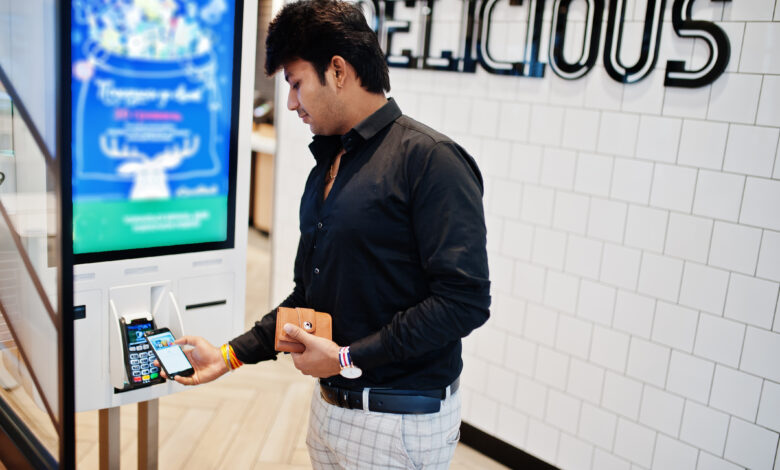
If you’ve walked into a modern fast-food joint, checked in for a flight, or even visited a doctor’s surgery recently, chances are you’ve bumped into one of those sleek, interactive screens. We’re talking about the self-service kiosk, and it’s no longer just a fancy piece of equipment – it’s a symbol of how technology, automation, and digital transformation are reshaping how we interact with businesses across a vast array of industries.
Once a niche offering, kiosk technology has gained immense popularity, transitioning from a mere novelty to an expected, and even preferred, way of doing business for countless customers. This isn’t just about speed; it’s about empowerment, personalisation, and a complete re-think of the customer journey through the lens of modern tech.
Let’s explore how these digital stalwarts are revolutionising customer experience.
Hospitality: Saying Goodbye to Queues, Hello Custom Ordering
The effect of self-service technology is most evident in hospitality. Go into any fast-food store, and more likely than not, you will be met by a bright digital display asking you to tap to start.
This is not just a matter of cutting queues.
-
Customisation has never been easier: No onions? Extra cheese? Gluten-free bun? The kiosk always gets it right, without confusion or judgment.
-
Faster throughput: Multiple customers can place orders simultaneously, increasing kitchen efficiency even during peak hours.
-
Automated upselling: Kiosks consistently suggest upgrades, combos, or add-ons powered by tech-based algorithms that enhance average ticket size.
Customers appreciate the independence, and businesses enjoy the efficiency. This is a tech-driven win-win scenario for all.
Retail: Empowering the Shopper Through Self-Service Tech
Shopping at retail stores is no longer just about browsing and buying; it’s about self-directed, technology-enhanced experiences. Consumers now want full control over how they shop, and the self-service kiosk fits seamlessly into this digital shift.
Consider supermarket self-checkout stations. They:
-
Allow shoppers to scan items at their own pace
-
Eliminate long queues, especially during rush hours
-
Reduce the need for conversation, which some shoppers prefer
Beyond supermarkets, self-service kiosks are appearing in fashion stores, electronics retailers, and home improvement outlets. In-store search kiosks help customers check product availability, removing the need to wait for staff assistance.
Endless aisle technology, often powered by automation and AI, enables customers to order out-of-stock products and have them delivered to their homes. This level of tech-enabled convenience supports today’s independent, knowledgeable, and digitally savvy shopper.
Transport & Travel: Simplifying the Trip
Kiosks are making travel smoother and less stressful, whether you’re printing a boarding pass, topping up a transit card, or checking in for a flight. The transport industry was among the first to embrace this automation technology, and with good reason:
-
Quicker check-ins: Select your seat and print your boarding pass without standing in line.
-
Baggage tagging: Drop your bags faster after printing your luggage tags at a kiosk.
-
Contactless journeys: A must-have in the post-COVID era, reducing physical touchpoints and streamlining the passenger experience.
In travel, technology-driven efficiency is essential, and kiosks deliver that with precision.
Government Services: Streamlining Access with Technology
Let’s talk about one of the slowest customer experiences of all, waiting at a government office.
Passport renewals. Vehicle registration. Council permits. These have traditionally involved long lines, confusing paperwork, and hours of waiting.
Thankfully, self-service kiosks are making inroads here, too:
-
ID verification kiosks allow users to take passport photos and upload documents digitally
-
Automated rate payment terminals are popping up in local councils and community centres
-
Service booking stations let citizens make appointments without calling help desks
Through public sector automation, governments are improving access and reducing administrative overhead. The result? A tech-enabled shift toward smarter, more citizen-centric service delivery.
Banking: A New Era Beyond the ATM
ATMs were the original self-service tech in banking. But modern kiosks are vastly more capable, acting as digital branches in high-traffic areas.
-
Account opening: New customers can open bank accounts in minutes via kiosks located in shopping centres or retail partners.
-
Loan applications and credit checks: All possible without stepping into a branch.
-
Personalised recommendations: Smart kiosks provide tailored offers based on customer data, often powered by AI-driven insights.
As more banks scale down their physical networks, these intelligent kiosks ensure automated banking access remains available, especially in rural or underserved regions. It’s a perfect intersection of financial technology and customer convenience.
Healthcare: Stress Reduction in High-Pressure Settings
Let’s face it: nobody enjoys long lines at pharmacies or doctors’ clinics. When you’re not feeling well, the last thing you want is paperwork or unnecessary interaction.
That’s where self-service kiosks, powered by health tech automation, are stepping in:
-
Patient registration: Quickly enter your details, no pens or clipboards.
-
Queue management: View your expected wait time without needing to ask.
-
Integrated payments: Settle your consultation fees via digital tap-and-pay solutions.
These kiosks are streamlining admin tasks for medical staff and reducing stress for patients. In a field where time and accuracy are critical, digital solutions are quietly improving the overall care experience.
Final Thoughts: The Quiet Revolution Touching Every Industry
From retail to travel, and healthcare to hospitality, the self-service kiosk is no longer a novelty. It’s a quiet revolution shaping smoother, more innovative, and more human-centric customer experiences through technology and automation.
In an era where time is precious and attention spans are short, self-service solutions deliver something uniquely valuable: freedom of choice, speed of service, and confidence in every transaction.
And with AI, machine learning, and smart data integration continuing to evolve, this is just the beginning for self-service tech.

